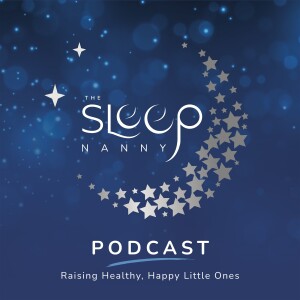
Tuesday Dec 08, 2020
Teething & Baby Sleep
Babies and young children are unwell quite often, there is teething which might feel endless and the common coughs and colds and runny noses which may be more prevalent in children who attend daycare. It’s totally fine and in some ways beneficial to them as it will help develop their immune systems and make them stronger but a teething or poorly little one can affect a good night’s sleep for a number of reasons. Teething pain comes from the build up of blood pressure in the gums and during the daytime, they tend to alleviate this pain by chewing on things and biting on things which releases some of that pressure. At night time, when they are resting, the pressure can build up to a point that the pain disturbs their sleep. Also, sucking draws blood to the gums and can increase the pressure too so bottle feeding, breast feeding and dummies can all add to the pain. Some little ones will reject or fuss over feeds because they want the milk and they want something in the mouth where the pain is, but it also hurts so they may feel a bit confused and conflicted about it – have patience with this and if you have any favourite teething pain relievers, it might be a good idea to use them 10 minutes before that last feed at bedtime to ensure they take a good feed before they go down for the night. Your little one might seek some extra comfort when teething so consider how you can offer this without completely changing your routine or throwing out the rule book! The same goes for illness and typically the common cold. Congestion is the worst for sleep as it makes it harder for us to breath and always tends to be worse at bedtime when we first lay down. Depending on the age of your little one, you may be able to safely elevate one end of their crib or use an extra pillow for an older child to ease to congestion – only do this if it is safe to like with a crib that has the elevating feature and age appropriately. Humidifiers can help with congestion as well, or a steamy bathroom experience right before bedtime. If you’re in the middle of sleep training with your little one when illness or teething strikes, you may decide to pause until they are over the worst of it. If you do, try to maintain the stage at which you have got. So don’t try to progress with your plan and also don’t go backwards by totally stopping what you’re doing – See how you can best keep going as you are, perhaps with a little extra reassurance and assistance but without a total throw out of all the hard work you have been doing. ”Alleviate, don’t deviate” As parents, we often overcompensate when our young ones are under the weather because we feel helpless and want to make things better for them. In fact, it’s probably more for you than for your child and that’s something worth asking yourself…’Am I doing this for my baby or am I doing this for me, who is this going to help to feel better?’ So stick to your routine because the routine itself doesn’t need to change. Add in some extra comfort as needed but without overdoing it or undoing your ‘rules and boundaries’. If your little one sleeps in their own cot or bed, sleeping in your bed is NOT going to take away the pain or discomfort. If you feel worried and want them close by, set up camp in their room and change your sleep location rather than theirs. As soon as your little one is over the worst of it, try to get back on track or continue on with your sleep training plan if you’re following one. You don’t need to wait for a full recovery, just on the mend and feeling brighter and you’re good to get on with things. The less you change, the easier it will be to get back on track. And lastly, what if they’re sick or you have a clean up to do in the night? Deal with the mess as calmly, quietly and as swiftly as possible with the least amount of light you can manage in!